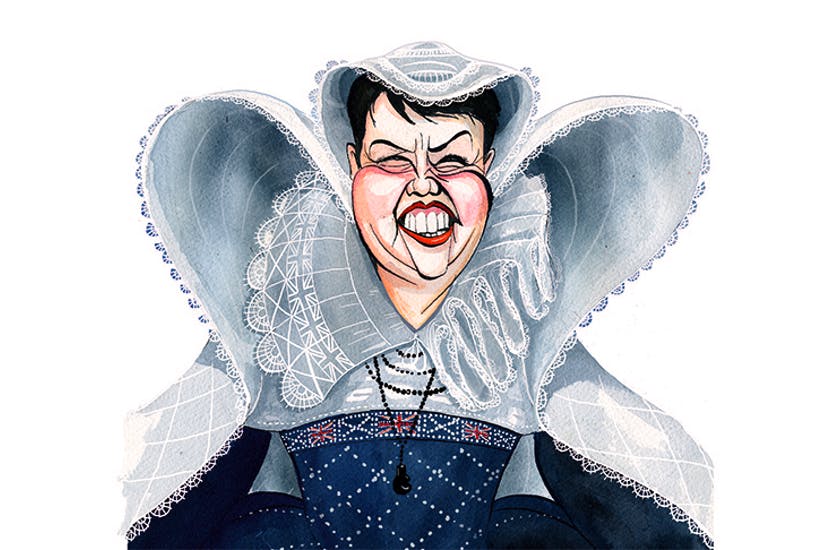Ruth Davidson is set to quit as Scottish Conservative leader. A party source is quoted in the Scottish Sun saying Davidson’s departure will be as a result of the ‘huge pressure’ of new motherhood — she gave birth to a son, Finn, last October — and finding herself ‘at increasing odds with the new leadership in London’.
What can we take from this? Twinning her objections to no-deal Brexit with the toll of mothering while in a high-pressured job dilutes her resignation as a protest against the course Number 10 has chosen today. And Davidson has been in politics (and before that journalism) long enough to know that. So this is less of a calculated strop and more of a moment of personal and political reckoning: family and personal health can be juggled with a demanding role, but is it really worth it when your party has strayed so far from the path you believe in? Davidson has evidently decided it’s not.
That doesn’t mean Brexit gets off the hook. It may not be the only reason she is going, but it is still a reason. Davidson campaigned vigorously for Remain (much more vigorously than her opposite number Nicola Sturgeon) but accepted the result and the steadily harder version of Brexit pursued by Downing Street, culminating in Theresa May’s withdrawal agreement. But no-deal Brexit was somewhere she could not go, not least as a would-be first minister of a country that voted 62 per cent Remain. That is a stubborn fact the Tories at Westminster have never faced up to and the Brexit they have pursued is one that has bolstered the SNP’s polling numbers and subdued Davidson’s Tory revival.
That revival was something else. Elected leader in 2011, Davidson slogged her guts out turning a moribund rump with little support outside Scotland’s rural south to the main opposition in the Scottish Parliament and the second largest Scottish contingent at Westminster. She doubled the number of Tory MSPs in a single election and, a year later, took their haul of MPs from one to 13. Davidson was also instrumental in defeating the SNP in the 2014 independence referendum and in successfully fending off Sturgeon’s attempts to revive the issue over the past five years. There was a window of opportunity in which, given hard work and luck, she could have snatched Sturgeon’s crown but the messier Brexit got, the less likely that eventuality became. She gave her party everything she had to give and its ingratitude only diminished her spirits, never her efforts.
When she does stand down, her popular deputy Jackson Carlaw will take over until a new leader is found. He would likely be a contender for that role and another highly capable MSP is the legal academic Adam Tomkins. But both campaigned for Remain and have all the same misgivings about the course being pursued by Boris Johnson that Davidson does. Expect talk of a breakaway centre-right party, one untainted by Boris’s Tories, to simmer back up again.
Nicola Sturgeon will say something polite and mildly feminist about Davidson in the coming 24 hours but in truth she will be delighted by the news. The strongest opposition politician she has ever faced — the only one who could really get under her skin — is gone, making it all the harder for the Scottish Tories to retain the seats they won from the Nationalists in 2017. She has also been ridden of the presumptive head of the Remain campaign in a future re-run of the independence referendum. The Tories and the Union have both lost their standard-bearer and for Nicola Sturgeon an unexpected shaft of light has cut through the gloomy clouds overhead.
Ruth Davidson’s departure signals the end of the Scottish Conservatives as a distinct party from the UK Tories. Yes, they will still have autonomy and still set their own policies at Holyrood but the plain fact is that Davidson is the party. She didn’t just revive it; she remade it in her image. Without her, or a leader of similar star power and independence, the party will find it more difficult to convince Scots that they can vote Tory only for Ruth but not for Boris. It’s Boris’s party now.







Comments